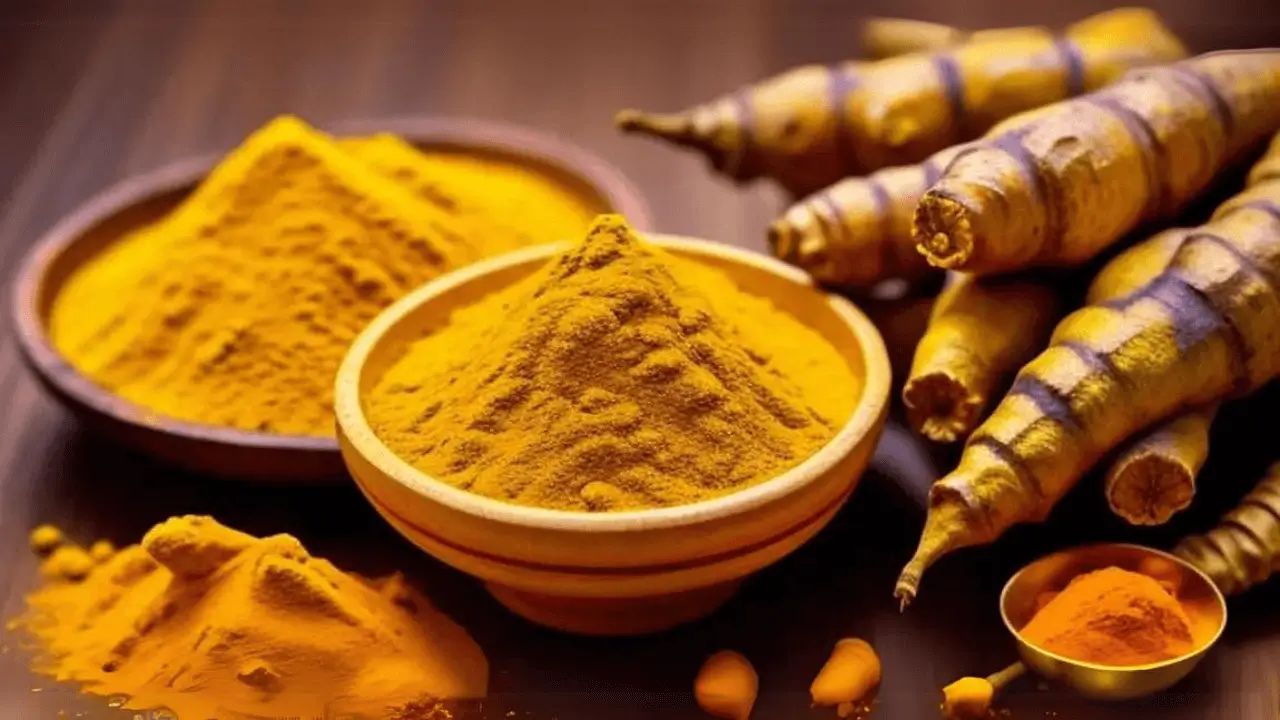Significance of Turmeric in Hindu Tradition and Modern Science

The significance of turmeric in Hindu religion and science intertwines cultural traditions with its scientifically proven medicinal properties. Here’s a deeper look into both aspects.
Religious Significance in Hinduism
- Purification and Blessing: Turmeric is considered sacred and is used in Hindu rituals for purification and blessing. It’s applied to the body during ceremonies like weddings and festivals to bless individuals and protect them from negative energies.
- Offerings to Deities: Turmeric is often offered to Hindu deities as a symbol of devotion and auspiciousness. It is used in preparing sacred substances like sandalwood paste and vermilion, which are applied to the idols of deities.
- Cultural Traditions: Turmeric is deeply ingrained in Hindu cultural practices, including cooking, where it’s used as a spice to flavor dishes and impart its golden hue. It’s also used in rituals to create colorful designs on the floor (rangoli) and applied to thresholds to ward off evil.

Medicinal Properties
- Medicinal Properties: Turmeric contains a compound called curcumin, which is known for its powerful medicinal properties, including anti-inflammatory, antioxidant, antimicrobial, and anticancer effects. It’s used in traditional medicine systems like Ayurveda to treat various ailments, including digestive issues, skin conditions, arthritis, and even certain types of cancer.
- Anti-inflammatory Effects: Numerous studies have shown that curcumin can help reduce inflammation in the body, which is linked to many chronic diseases. It inhibits the activity of inflammatory enzymes and molecules, making it beneficial for conditions like arthritis, heart disease, and inflammatory bowel disease.
- Antioxidant Activity: Curcumin is a potent antioxidant that scavenges free radicals and neutralizes oxidative stress, which can damage cells and contribute to aging and disease. Its antioxidant properties help protect cells from damage and may reduce the risk of chronic conditions like Alzheimer’s disease, cancer, and heart disease.
Overall, turmeric holds a special place in Hindu religious practices, symbolizing purity, auspiciousness, and devotion. Its significance extends into the realm of science, where its active compound curcumin offers a wide range of health benefits backed by scientific research. This convergence of cultural tradition and scientific validation underscores the holistic nature of turmeric’s significance in Hindu religion and its relevance in promoting health and well-being.
